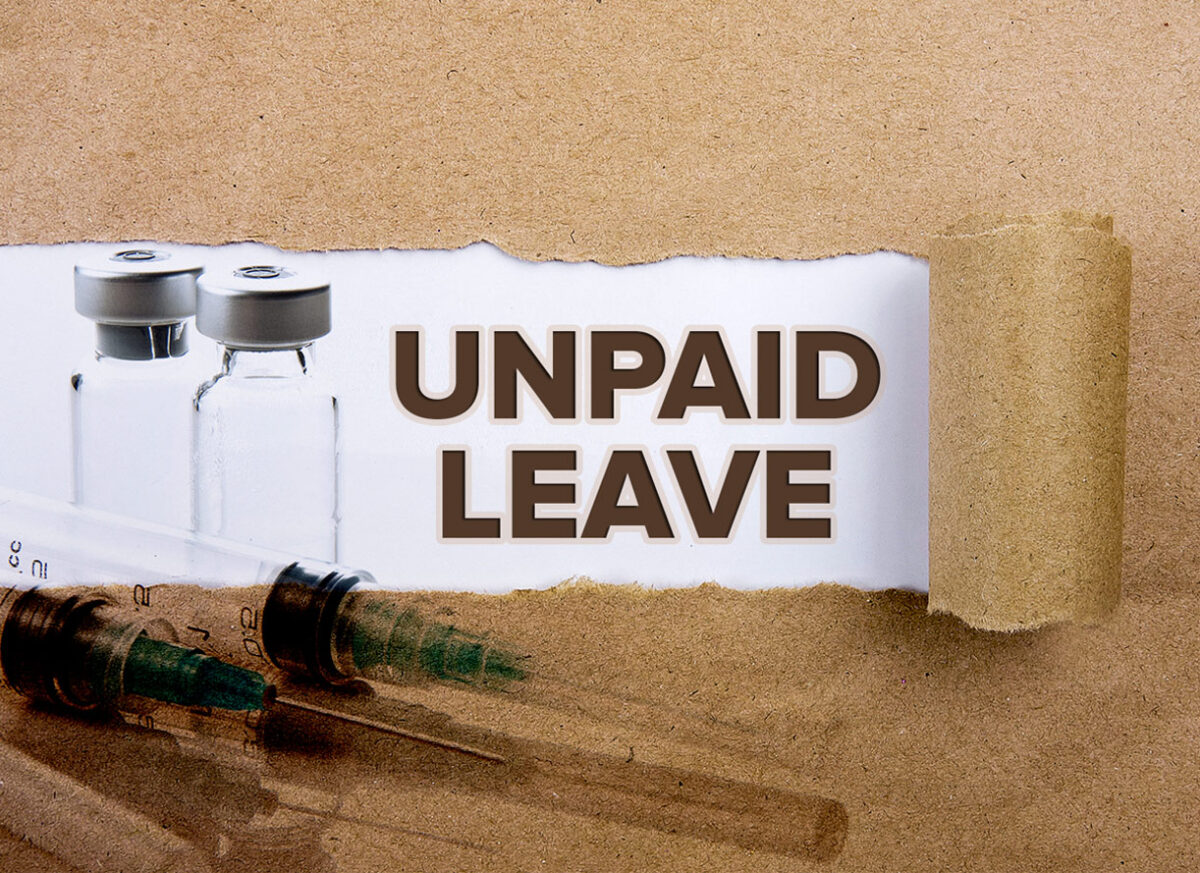The City of Toronto recently terminated 461 employees because they refused to get vaccinated. Prior to this, the City of Toronto had placed many of these employees on unpaid leave.
Many employers are taking this same approach: unpaid leave, followed by termination with cause. However, in most cases, employers cannot place an employee on an unpaid leave.
Generally, unless your employment agreement expressly says so, your employer cannot place you on an unpaid leave. In rare cases, employers may be able to do so if they have included a clause in your employment agreement that either permits a temporary layoff or justifies it as an unpaid suspension due to non-compliance with a workplace vaccination policy.
Some employers may try to claim they can lay you off pursuant to Ontario Regulation: Infectious Disease Emergency Leave (“IDEL”). However, this tactic is risky, as many employees may have a constructive dismissal claim if they have been placed on IDEL.
So, if you are placed on unpaid leave, your employer may have constructively dismissed you, and you could be entitled to damages for wrongful dismissal. Do not simply accept or agree to unpaid leave or temporary layoff. Instead, consult an experienced employment lawyer immediately, because you could be entitled to a severance package, with longer term employees being entitled to up to 24-months in severance and benefits.
Your employer could also terminate you with cause because you have not complied with their vaccination policy, and not provide you with notice or pay in lieu of notice. Employers will have a difficult time terminating you and not providing at least the Employment Standards Act, 2000, (“ESA”) minimum notice and severance. To do so, they would need to demonstrate your misconduct amounts to the high standard of “guilty of wilful misconduct, disobedience, or wilful neglect of duty that is not trivial and was not condoned by the employer.” In some workplaces, such as hospitals, the employer might succeed. However, in others, such as a fully remote business, it will be difficult for an employer to justify termination.
Alternatively, your employer may take a safer approach, and terminate you with cause, but provide at least your ESA minimum notice and severance. In this case, they would instead rely on the common law standard of cause or just cause to withhold your common law entitlements. However, if they cannot demonstrate that breach of a unilaterally imposed vaccination policy is sufficient to justify a common law cause termination, you could still be entitled to a full severance package.
Finally, you may also be entitled to damages pursuant Ontario’s Human Rights Code (“Code”) if your employer has failed to accommodate your Code-related reasons for refusing to get vaccinated. However, there is clear direction from the Ontario Human Rights Commission (“OHRC”) that vaccination requirements are generally permissible and compliant with the Code. Accordingly, this argument will likely fail in most cases.
We encourage you to seek assistance from Hum Law firm immediately if you are placed on unpaid leave, laid off, or terminated to ensure you are treated fairly.
Complete our Free Assessment Form Here
Call HUM Law today at (416)214-2329 or email info@thehumlawfirm.ca


